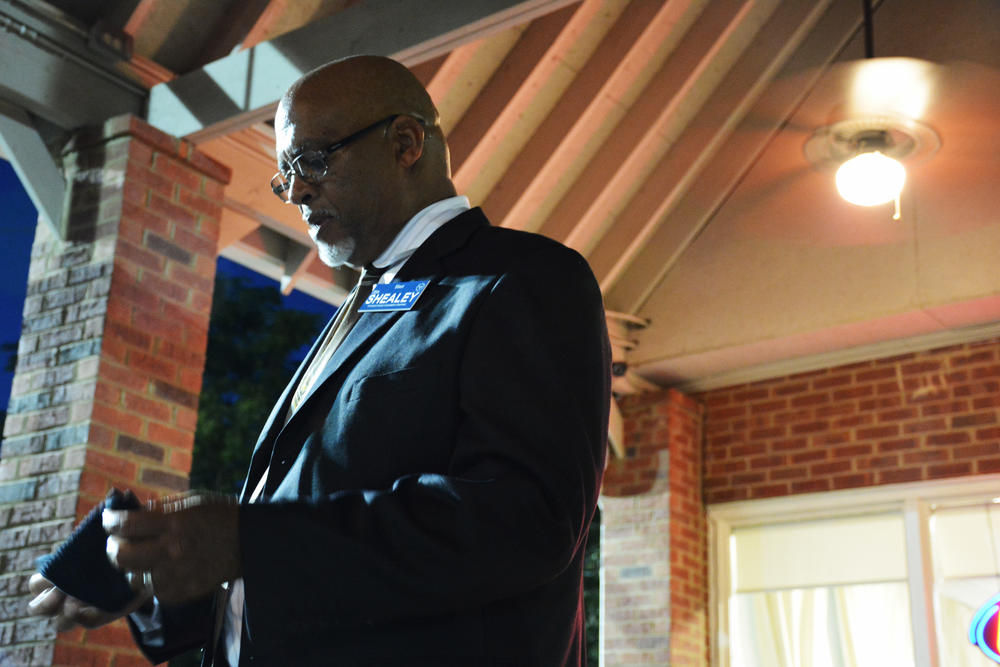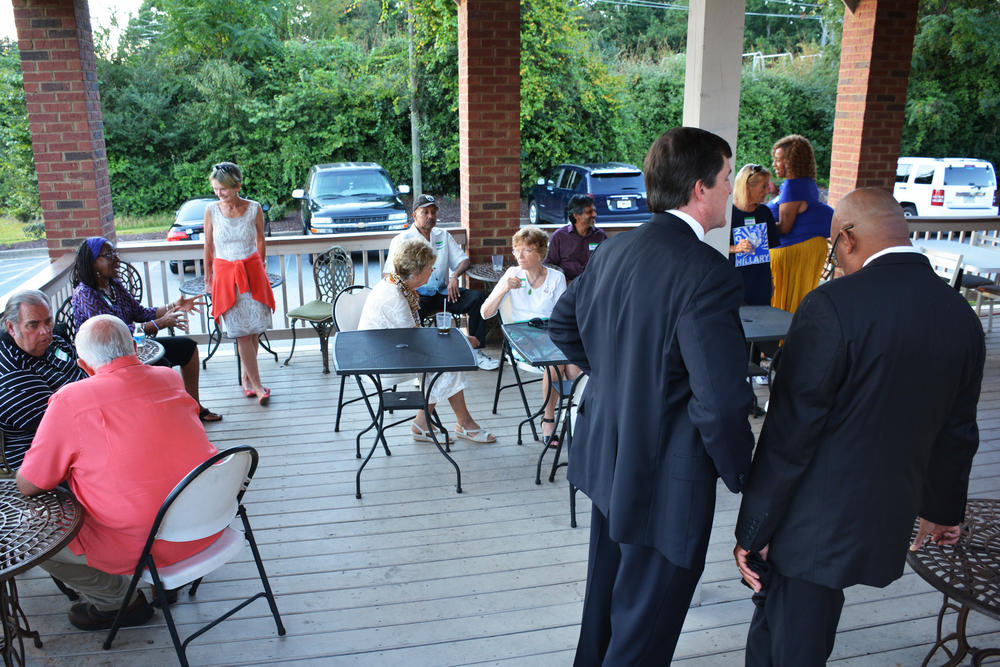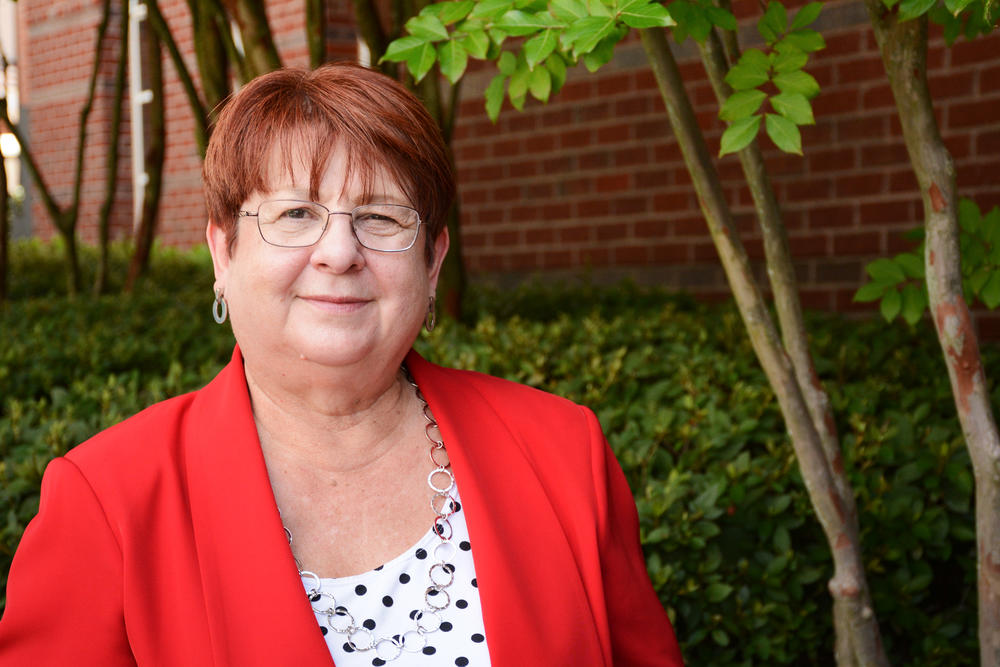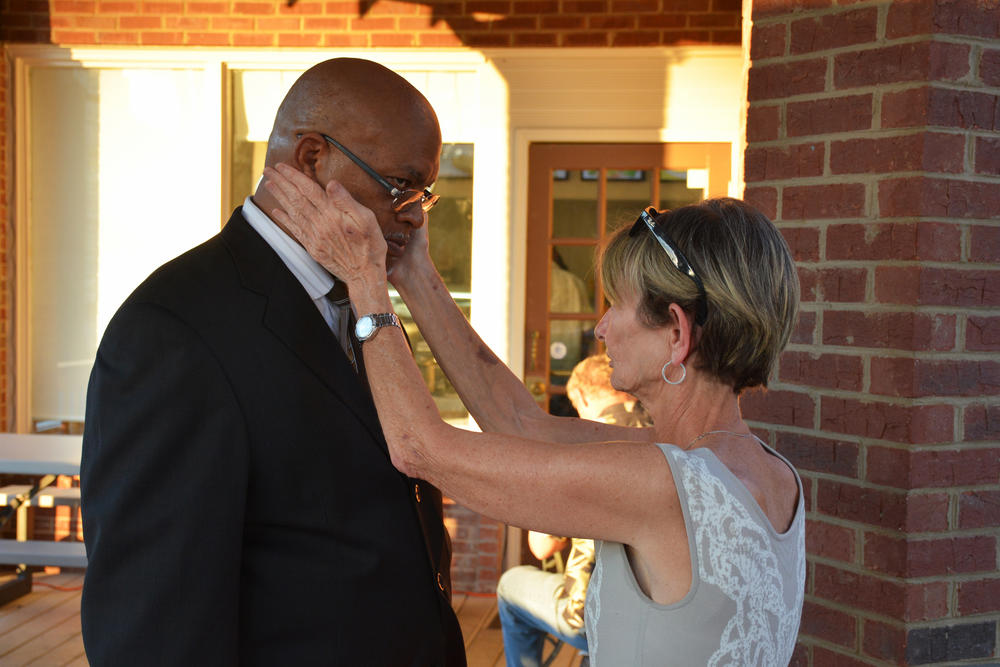Section Branding
Header Content
Breaking The Color Barrier In Gwinnett County Goverment
Primary Content
Gwinnett County isn’t all white, but its county commission is and always has been.
The county has undergone a radical demographic transition in recent decades, but the Gwinnett Board of Commissioners has never had a non-white member.
That could change this year.
For the first time in history, white voters no longer make up the majority of Gwinnett’s registered voters, and that could tip the scales for one African-American county commission candidate: Democrat Jim Shealey.
On a recent weekday evening, the Gwinnett Democrats held a small fundraiser for Shealey in Norcross. (Shealey also happens to lead the group.)
About 20 people gathered on a restaurant patio within earshot of the murmur of rush hour traffic to hear Shealey’s pitch for why he should be the next Gwinnett County Commission Chairman.
“I think that anybody in public office should always think towards the next generation,” he said. “They should want to leave a better place than where they are.”
Shealey’s a one-issue candidate. He wants to expand Gwinnett County Transit to include light rail to help take pressure off the county’s notoriously clogged roads.
Notably, he doesn’t think Gwinnett should join MARTA. He feels the county should have total control over how its transit funds are spent.
However, this election, there’s something else on Shealey’s mind: Gwinnett’s all-white county commission.
“I mean, something’s wrong with that picture in a county that’s 53 to 56 percent minority,” he said. “Something’s wrong with that.”
Actually, the most recent U.S. Census data say 58 percent of Gwinnett’s population is non-white, the latest snapshot in a decades-long story of growth and diversification.
In 1990, the county had 352,910 residents and was almost 90 percent white, non-Hispanic. By 2010, Gwinnett’s population ballooned to 805,321 residents, only 43 percent of whom were white.
Shealey believes the lack of political representation by members of minority communities means those communities’ concerns don’t get heard.
“In a way, I don’t think black and white. I think right,” he said. “If I see something wrong, I want to try to change it.”
Jerry Gonzalez, Executive Director of the Georgia Association of Latino Elected Officials, or GALEO, also wants to change the balance of power in Gwinnett politics.
“The bottom line is: are the community’s interests being spoken to?” he asked from GALEO’s offices in Atlanta. “Right now, the answer is no.”
Along with the Georgia NAACP and others, GALEO is suing the Gwinnett County Board of Commissioners for violating the Voting Rights Act.
They argue the county’s electoral districts are drawn to keep minority groups from holding a majority in any district, despite the fact that those groups make up a majority of the county’s population.
They also want Gwinnett to eliminate its at-large chairman position, the very position Shealey’s seeking.
“It doesn’t matter if we register a bunch of people to vote if their power to be able to exercise that vote is diluted,” Gonzalez said.
The suit was filed in August, but Gwinnett County has yet to issue a formal response.
“I think that we’re trying very hard to be a welcoming place and to make it good for everybody that’s here,” said Republican County Commission Chair Charlotte Nash.
She’s one of the defendants in the GALEO lawsuit. She’s also running against Jim Shealey to keep her seat.
When we spoke at the Duluth Fall Festival (think: crafts, crowds, carnival food) Nash declined to comment on the suit, but said the commission had done its best to accommodate a changing population.
“A community is just like a living organism: if it’s not growing end evolving, then eventually it’s going to be destroyed,” she said. “It can't survive unless it evolves.”
Nash’s main campaign issue? Fiscal responsibility as Gwinnett continues to grow and diversify.
As for what that growth and diversity could mean for her re-election chances?
“I think that’s in the hands of the voters, and the voters have the power to make the decisions this time about who’s elected,” she said.
When asked about the challenges of governing such a diverse electorate, Nash said it was hard to represent the interests of such a large population, no matter the demographics. (As of 2015, Gwinnett had almost 900,000 residents.)
That raises the question: do minority groups need minority representation?
“There are, of course, moments where we can expect people who don’t look like a particular group can actually make good decisions on behalf of everyone,” said Michael Leo Owens.
He studies race and politics at Emory University.
“A question though is: ‘Does that always happen?’ No, it does not,” he said.
Owens also cautioned against assumptions that members of different minority groups would rally around a single minority candidate.
Still, he said he wasn’t surprised by the GALEO lawsuit, because there are only so many ways for people to try to change the electoral process.
“You can take to the streets,” he said. “You could attempt to try to influence the state legislature, who ultimately decides whether [electoral] maps are good or not, or you rely upon the courts.”
Then, of course, there are elections.
Jim Shealey isn’t running on a redistricting platform, and he’s not sure if the GALEO lawsuit will have an impact on the election.
However, both are working towards a similar end: breaking the Gwinnett County Commission’s color barrier. Shealey says the key to winning will be turnout.
“It’s not going to be easy to make sure people get to the polls, to get them out there to vote,” Shealey said.
But if they do, the numbers could be in his favor, if just barely. According to the latest data from the Secretary of State, just over half--50.8 percent--of registered Gwinnett voters are non-white.





